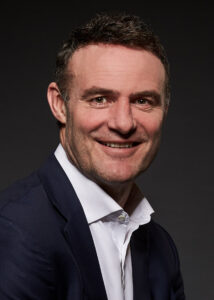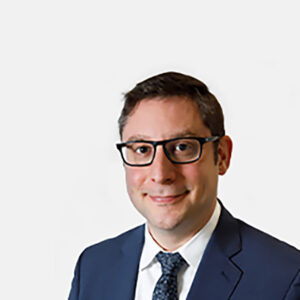Stéphane Janin, head of global regulatory developments and public affairs, Axa Investment Managers
Panel: Rethink tank A: Global regulatory trends coming your way: Pitfalls, challenges and opportunities, June 25, 9.50am
Regulatory trends are driven by either political, societal, technological or business trends. Those non-regulatory trends include certain long-term trends – such as the need to adapt to climate change or digital innovation. But more recently some additional trends have developed, like the growing focus on financing the European defence industry and how the asset management industry could/should contribute to it in the right way.
An additional game-changer might be the EU Parliament’s and national elections in Europe within the next five years, with the growing influence of political parties for whom ESG issues generally seem to be less prioritised.
Yet another game-changer might be the outcome of the US Presidential election, with potentially less involvement of US authorities within European matters – including in financial regulatory matters – which might on the one hand create less external stimulus on EU regulatory actions, but on the other hand give more opportunities for the EU to act by itself.”
additional trends HAVE developed, like the growing focus on financing the European defence industry and how the asset management industry could/SHOULD contribute to it in the right way.

Gary Paulin, head of international enterprise client solutions, Northern Trust
Panel: The optimal outsourcing equation: Balancing cost savings and service quality, Jun 25, 3.30pm
Cost management and service quality need no longer be considered mutually exclusive. Yes, moving a firm’s fixed-cost infrastructure onto a variable cost model through outsourcing brings the ability to manipulate its cost base. And yes, this ‘capital-lite’ model is a significant solution for helping address the increasing costs and complexity of doing business.
However, the power and capabilities brought by technological advancement mean the proposition is no longer about outsourcing service solely to reduce cost.
It’s about providing ‘Infrastructure as a Service’ – an operating model that’s more future-fit and resilient for managers and a platform they can run their businesses on regardless of size, with the freedom to invest to service clients, meet regulatory requirements, gather flows and improve performance – including, where appropriate, through selected trading and investment capabilities.
This model also offers broader benefits by allowing firms to compete on alpha and service rather than predominantly on price. Freed from having to manage unnecessary fixed-costs with improved resiliency and agility, its adoption will encourage competition, innovation and focus on service quality while increasing choice for investors – all of which can only be good for our industry.

Tim Edwards, global head of index investment strategy, S&P Dow Jones Indices
Panel: The Evolution of Passive and Active Investing Strategies, June 25, 3pm
The impact of passive investing on equities since the turn of the century has been such as to fundamentally change the industry. As the data have accumulated and the range of available products has expanded. Based on a comparison of their trajectories, the stage may now be set for similar developments in professional fixed income management.
In the recent paper ‘The Hare and the Tortoise – Assessing Passive’s Potential in Bonds’, we explore the practical, theoretical and empirical case for an indexed approach in fixed income, outlining why passive investing came later and examining whether its growth might continue to echo, or even catch up to, that of equity markets.
The impact of passive investing on equities since the turn of the century has been such as to fundamentally change the industry

Philippe Laurensy, head of product, strategy and innovation, Euroclear
Panel: How global challenges are calling private markets to rally wealth investors
Private investors are increasingly turning to private markets to achieve their investment objectives. These include return generation, portfolio diversification and investment impact.
Managers want streamlined digital solutions which cover the entire investment cycle so they can gain scale and reach. They are developing specific products and distribution channels to increase access and attract capital.
Another important factor that is driving opportunity for wealth managers is on the regulatory front. We are seeing facilitation of this through new flexible fund regimes like the Eltif 2 in the EU and LTAF in the UK. At Euroclear, we have seen the opportunity this new market environment brings by further enhancing our funds offering.

Franck Bonte, chief information officer, Societe Generale Securities Services
Panel: Future proofing technology in asset & wealth management
How can the asset management industry use its technical debt to optimise operating models and pursue its innovation path?
The initial thought was to let go of the technical debt as a way to protect client delivery capacity. Historically, technology was not seen as strategic, but now regulators require the protection of client assets and governments need economic stability, which entails stronger security to limit systemic risk.
At Societe Generale Securities Services, our strategy is to transform regulatory requirements into an opportunity for innovation and a higher quality client experience that integrates self-care capabilities.
The need to tackle technical debt speeded up our capacity to create new solutions for our clients. This will increase momentum compared to competitors with less experience in this area.
Modernising our legacy systems and pursuing our strategy based on a data-driven digital platform powered by SG Markets has helped us to leap ahead and put six client AI solutions into production.

Jean-Francois Hirschel, Founder & CEO, H-Ideas
Panel: What is the role of culture in manager selection? June 25, 4:35pm
Our society needs a solid foundation of trust between asset managers, their clients and their beneficiaries. The demographics of our world are such that asset managers have a huge responsibility to make savings productive for a growing retired population.
So how can a manager selection process aim to foster this trust? Certainly by a thorough review of the usual parameters such as firm structure, investment process, performance and fees. But also by analysing the deeper identity and culture of the company: what drives the management? Why do employees get up in the morning to go to work? What are the values that the teams live by?
This can create alignment between asset managers, those who select them and the ultimate beneficiaries because it goes deep into the real motivations and drivers of each party. This is not without its challenges: how do you measure culture? How do you compare the cultures of different organisations on a like-for-like basis? There are solutions to overcome these, and they are worth exploring for the sake of constructive, long-term mutual understanding.
Source link : https://funds-europe.com/fundforum-spotlight/
Author :
Publish date : 2024-09-12 07:00:00
Copyright for syndicated content belongs to the linked Source.


